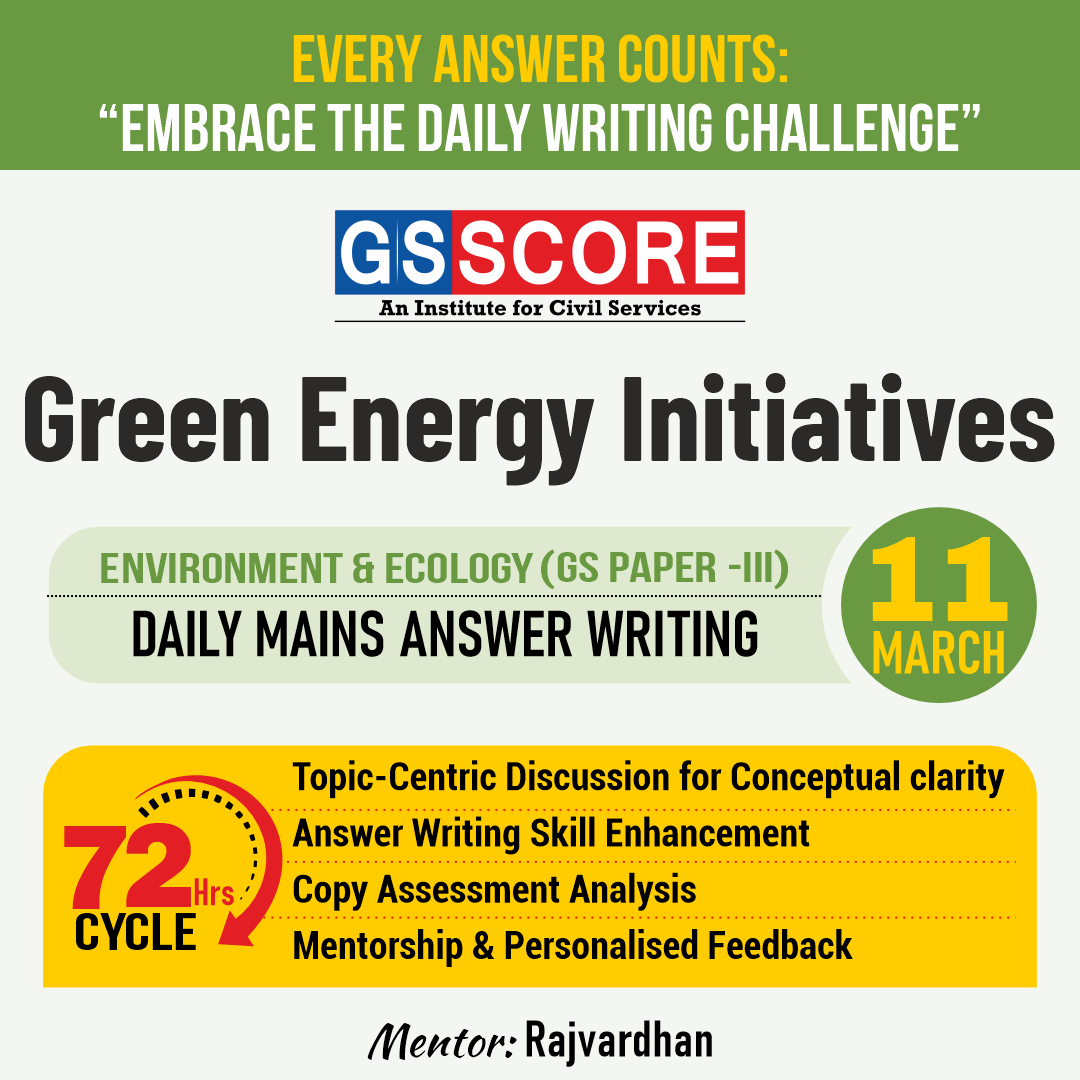


Instruction:
- There will be 2 questions carrying the First Question is-10 marks Write your answers in 150 words and the Second Question is-15 marks Write your answers in 250 words.
- Any page left blank in the answer-book must be crossed out clearly.
- Evaluated Copy will be re-uploaded on the same thread after 2 days of uploading the copy.
- Discussion of the question and one to one answer improvement session of evaluated copies will be conducted through Google Meet with concerned faculty. You will be informed via mail or SMS for the discussion.
Question #1. What is Green Hydrogen? Discuss the features of National Mission on Green Hydrogen. 10 marks (150 words)
Question #2. How the National Biofuel Policy, 2018 will help India reduce its carbon emissions? 15 marks (250 words)
(Examiner will pay special attention to the candidate's grasp of his/her material, its relevance to the subject chosen, and to his/ her ability to think constructively and to present his/her ideas concisely, logically and effectively).
STEPS & INSTRUCTIONS for uploading the answers
Step 1 - The Question for the day is provided below these instructions. It will be available at 7:00 AM.
Step 2 - Uploading of Answers : Write the answer in A4 Sheet leaving proper margins for comments and feedback and upload the PDF in MY ACCOUNT section. Click on the option of SUBMIT COPY to upload the PDF.
Step 3 - Deadline for Uploading Answers: The students shall upload their answers by 7:00 PM in the evening same day. The first 50 copies will be evaluated.
Step 4 - Feedback : Mentors will give their feedback for the answers uploaded. For more personalised feedback, join our telegram channel by clicking on the link https://t.me/mains_answer_writing_cse . A one-to-one session will be conducted with the faculty after copy evaluation in 72 Hrs.
Model Answer
Question #1. What is Green Hydrogen? Discuss the features of National Mission on Green Hydrogen. 10 marks (150 words)
Question #2. How the National Biofuel Policy, 2018 will help India reduce its carbon emissions? 15 marks (250 words)
- Sustainable Alternative: Biofuels, like ethanol and biodiesel, are derived from renewable biomass sources such as crops or agricultural waste. Burning them releases carbon dioxide, but it's part of a natural cycle if the biomass is replanted sustainably. This reduces reliance on fossil fuels, whose burning adds new carbon to the atmosphere.
- Reduced Emissions: Biofuels are generally considered cleaner burning than fossil fuels. While production processes might have some emissions, studies suggest biofuels can significantly reduce lifecycle greenhouse gas emissions compared to gasoline or diesel.
- Blending Mandates: The policy enforces blending mandates, requiring oil companies to mix biofuels with petrol and diesel at specific ratios. This increases biofuel consumption and lowers overall emissions from the transport sector, a major contributor.
- Waste Management: The policy promotes using agricultural waste like crop residues for biofuel production. This not only reduces waste burning, a common practice leading to air pollution, but also creates a valuable product.
- Boosting Domestic Production: The policy incentivizes domestic biofuel production, creating jobs in rural areas and promoting energy security by reducing reliance on imported oil.


